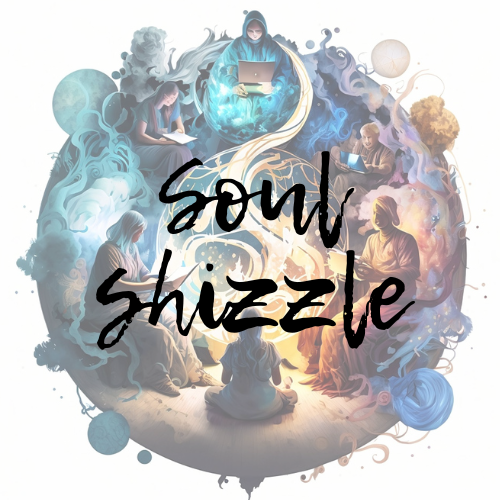Akashic Records Questions
The Akashic Records are believed to be a vast energetic database that contains all the information about the past, present, and future. Accessing these records can provide individuals with insight, guidance, and knowledge about themselves and the world around them. However, to make the most of this resource, it is important to understand the different types of questions that can be asked and how to ask them effectively. In this article, we will explore the various types of questions and provide Akashic Records questions that you can use.
One of the first distinctions to make when asking questions in the Akashic Records is between general and specific questions. General questions tend to be broad and open-ended, allowing for a comprehensive understanding of a particular topic. These questions can help individuals gain a better sense of the bigger picture and the underlying patterns and themes that may be at play. For example, a general question could be, “What is the purpose of my life?” This question allows for a broad exploration of one’s life purpose and can lead to deep insights and reflections.
On the other hand, specific questions are more focused and often require a definitive answer. These questions can provide detailed information and help individuals gain clarity on specific aspects of their lives. For example, a specific question could be, “What steps can I take to improve my relationship with my partner?” This question allows for a more targeted exploration of a specific issue or area of concern.
Another important distinction to consider is between closed-ended and open-ended questions. Closed-ended questions can be answered with a simple “yes” or “no,” and they tend to limit the scope of exploration. While closed-ended questions can sometimes be helpful in obtaining specific information, open-ended questions tend to provide more valuable insights and allow for deeper exploration. Open-ended questions are those that require a more in-depth response and encourage individuals to delve into their thoughts and feelings. For example, a closed-ended question could be, “Will I find a new job soon?” This question limits the response to a simple yes or no. In contrast, an open-ended question could be, “What steps can I take to find a fulfilling and rewarding career?” This question allows for a more comprehensive exploration of career-related challenges and opportunities.
Questions can also be categorized based on their temporal focus. Past-oriented questions can help individuals understand their personal history and patterns. These questions can provide clarity on past experiences, traumas, and lessons that may still be influencing their present lives. For example, a past-oriented question could be, “What were the major lessons I learned in my previous romantic relationships?” By exploring past experiences, individuals can gain valuable insights into their relationship patterns and make informed choices moving forward.
Present-oriented questions focus on the current situation and can provide individuals with immediate guidance and direction. These questions can help individuals understand their present circumstances, challenges, and opportunities. For example, a present-oriented question could be, “What is the underlying cause of my ongoing health issues?” By exploring the present situation, individuals can gain insights into the root causes of their challenges and take appropriate action for their well-being.
Future-oriented questions can help individuals set goals and aspirations, and prepare for what is to come. These questions can provide valuable guidance and insights into potential pathways and possibilities. For example, a future-oriented question could be, “What steps can I take to manifest abundance and financial stability in my life?” By focusing on the future, individuals can gain clarity on their goals and aspirations and take aligned action.
In addition to temporal focus, questions can also be categorized as personal or universal. Personal questions are those that relate directly to an individual’s personal experiences, challenges, and goals. These questions tend to be more specific and actionable. For example, a personal question could be, “What steps can I take to improve my relationship with my sibling?” By exploring personal dynamics, individuals can gain insights into their relationships and potentially make positive changes.
On the other hand, universal questions are more broad and philosophical in nature. These questions explore larger concepts and themes that are relevant to humanity as a whole. Universal questions can provide individuals with new perspectives and insights into the world around them. For example, a universal question could be, “What is the purpose of suffering in human life?” By exploring universal themes, individuals can expand their understanding and gain deeper insights into the human experience.
When asking questions in the Akashic Records, it is important to consider ethical considerations such as privacy, consent, and intention. Respect for privacy means being mindful of the personal and sensitive nature of the information being sought. Before asking someone a sensitive question, it is important to have their consent and approach the topic from a place of respect and kindness. Additionally, intention plays a crucial role in the ethics of asking questions. It is important to ask questions with pure motives and a genuine desire for growth and understanding.
To provide a practical understanding of how to ask questions in the Akashic Records, here are some sample questions that can be used as a starting point:
Past Life Questions:
- Who was I in my past life?
- What major lessons did I learn in my past lives that are affecting me in this lifetime?
- How can I heal any unresolved issues from my past lives?
Present Life Questions:
- What is the underlying cause of my current challenges or struggles?
- How can I overcome my current obstacles and find more fulfillment and joy in my life?
- What steps can I take to improve my overall well-being and happiness?
Future Life Questions:
- What opportunities and possibilities are available to me in the future?
- How can I align myself with my highest potential and create a fulfilling future?
- How can I improve my relationship with my partner, friend, or family member?
- What steps can I take to manifest my dreams and aspirations?
Personal Relationship Questions:
- What patterns or beliefs are affecting my relationships, and how can I shift them?
- What steps can I take to attract more loving and supportive relationships into my life?
Universal Questions:
- What is the nature of consciousness and our connection to the divine?
- How can we create more harmony and peace in the world?
- What is the purpose of suffering and how can we find meaning in challenging times?
Remember, these are just starting points, and it’s important to tailor your questions to your own unique needs and interests. Take the time to reflect on the specific areas of your life or the aspects of yourself that you would like to gain insight into, and formulate your questions accordingly. With practice and intention, accessing the Akashic Records can be a transformative tool for self-discovery and growth.
We may earn a commission for purchases made using our links. Please see our disclosure to learn more.




